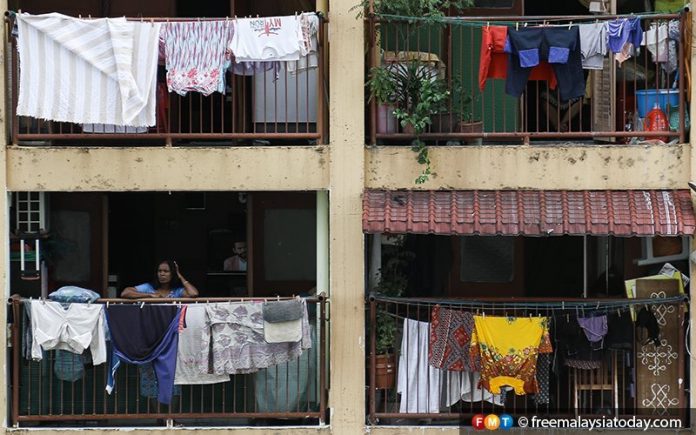
PETALING JAYA: An economist has proposed that Putrajaya revisit previous economic development models to eradicate poverty in Malaysia, after a think-tank revealed that there were no significant improvements in relative poverty over the last three decades.
Denison Jayasooria, chairman of the Asian Solidarity Economic Council (Asec), said the government should work at empowering the people, especially those in rural areas, by using models similar to that of the New Economic Policy (NEP) from the 1970s.
“We have a huge civil service but they are not on the ground making a difference in the likes of the people.
“Increasingly politicians and those who have worked in Putrajaya want to make it Putrajaya-centric, but I feel we need to return back to the kampungs, neighbourhoods and communities,” he said.

In a webinar organised by Forum Ekonomi Manusiawi today, Khazanah Research Institute (KRI) revealed in a report that the rate of absolute poverty in Malaysia had decreased, but there were still large income gaps between the rich and the poor.
The report also found income disparities between those in the Klang Valley and in all other states, due to the country’s economic structure which prioritises rapid industrialisation over agriculture.
Jayasooria urged the government to consider decentralised budgeting, to allow the public to regain control over the economy instead of politicians or the rich.
Another economist, Muhammed Khalid, said it was crucial to look at absolute poverty according to states, not the nation as a whole.

He pointed out that absolute poverty rates in Sabah prior to the Covid-19 pandemic were still particularly high at 20%, with one in five people still experiencing poverty.
“Relative poverty, in fact, has been increasing between 2016 to 2019 despite the gross domestic product (GDP) going up. Inequality also went up despite the economy growing,” he said, adding that income disparities would continue to widen as a result of the impact from the Covid-19 pandemic.
Muhammed called on Putrajaya to implement a more “progressive” tax system, which holds the country’s richest people accountable by ensuring they pay a fair amount of taxes from their large incomes.


